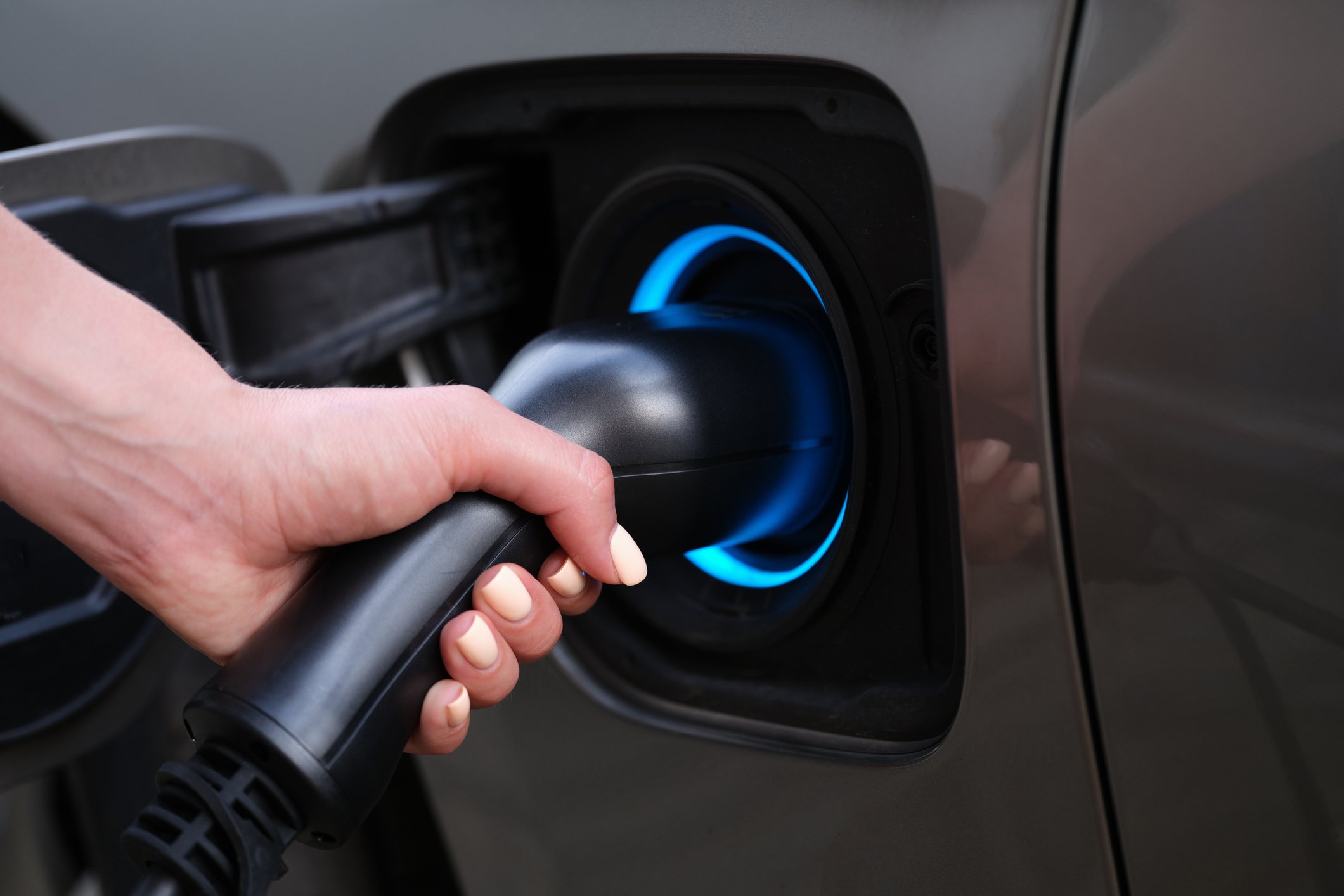There's a lot of interest around alternative fuels for transportation, and hydrogen fuel cell vehicles, or FCVs, are either lauded as the future or panned as a pointless waste of development dollars. So which is it? We asked three of our best minds in autos and alt-fuels to weigh in.
Here's what they had to say.
John Rosevear: I'm tempted to say that hydrogen fuel cells are just a fad. The question of what follows internal combustion has been an open one in the auto business for a while. It's still an open one to some extent, but there's no question that battery-electric vehicles are gaining momentum quickly. Just ask any Tesla Motors (TSLA +0.13%) fan.
But every time I'm tempted to write off fuel cells, I remember one big caveat: The world's biggest automaker has made a big bet on them, because it thinks battery-electric cars have a fatal flaw.
The Toyota Mirai is an electric car powered by a hydrogen fuel cell. Image source: Toyota.
Scientists at Toyota (TM 2.33%) think that the hours-long recharging time required by battery-electric cars will prove to be an insurmountable obstacle to their large-scale adoption. Toyota executives say that the hydrogen fuel cell powering the company's new Mirai sedan is a "better battery," one that can be "recharged" in the time it takes to fill the car's tank with hydrogen -- about five minutes.
Detractors say that Toyota's Mirai is an expensive distraction. While fuel cells have no "exhaust" save for water vapor, low-cost production of hydrogen gas isn't the cleanest process right now. Add in the lack of refueling stations and distribution infrastructure and the still-high cost of fuel-cell manufacturing, and batteries still look a whole lot better. At least that's the argument, and it has merit.
But what if Toyota's right about recharging time?
Toyota and other fuel-cell advocates say that all of that could change very quickly if the technology starts to get market traction. That's also true. The Mirai is Toyota's trial balloon. It may sink without a trace. But if it doesn't, then we might have to take the technology a lot more seriously.
Daniel Miller: When speaking about hydrogen fuel cell cars, Tesla CEO Elon Musk commented that fuel cell cars "are extremely silly" and that "hydrogen is an incredibly dumb" alternative fuel.
While I won't take such a strong stance, I do believe that Musk finds himself on the correct side of battle between hydrogen fuel cells and battery-powered electric vehicles.
The difference between battery-powered electric vehicles and hydrogen fuel cell-powered vehicles, or EVs and FCVs, is that the latter replaces the battery pack for a smaller and more expensive electrochemical system that uses hydrogen to generate electricity, which then powers the car.
The main obstacle, in my opinion, is that FCVs don't provide enough consumer benefit to become anything more than a fad. Those of you thinking that FCVs are pure "green" for the environment overlook that the hydrogen used to power FCVs is generated by natural gas 95% of the time in the U.S., and that generates carbon emissions. In the future, FCVs may be powered with hydrogen that was generated using cleaner methods, but for now it doesn't seem like a big enough advantage over EVs, if any at all.

The Model S. Image source: Tesla Motors.
At the moment, FCVs have a higher fueling cost than battery-powered EVs, and when compared with EV battery charging stations, there is far less hydrogen fueling station infrastructure. FCVs face the chicken-and-egg dilemma, in that the infrastructure won't be built if there isn't ample FCV demand, and Toyota predicts only about 200 early adopters for its 2016 Mirai.
Battery-powered EVs, such as Tesla's vehicles, have a significant leg up in the momentum category for building out charging infrastructure. We also have to consider the cost to build hydrogen station infrastructure, which, at $1.5 million per station, is roughly 10 times the cost to build a Tesla supercharger.
Beyond infrastructure questions, there are many unknowns facing FCVs, such as: How expensive will maintenance and replacement costs be for hydrogen fuel cell powertrains? Heck, there isn't even an established retail price for hydrogen fuel at the moment.
There's no question that Toyota, which believes FCVs are the answer to replacing the internal combustion engine, has been one of the companies at the forefront of automotive innovation in years past. And that gives hydrogen-powered cars some credibility. But if FCVs are going to overtake battery-powered EVs as the premier alternative-fueled vehicle, it's going to be one heck of a comeback, and I don't see a big enough competitive advantage, if any, to make that a real possibility.
Jason Hall: I tend to agree with Daniel on this one, despite John's excellent point that Toyota -- one of the most innovative automakers over the past half-century -- is betting big on FCVs. And my biggest reason? Despite the engineering challenges with batteries (which, based on the way the majority of people use their cars, is less a problem and more an occasional delay), hydrogen fuel cell technology faces both a complete lack of viable infrastructure and a challenge that Toyota's engineers will never be able to overcome: consumer perception.
The reason Tesla has been successful so far is that it created something in the Model S that gets people excited. It's beautiful. It's fast. It can be "refueled" anywhere with electricity. Fuel-cell vehicles -- especially if Toyota continues to follow the approach of the small, economical-focused "compact car" design, will never win over consumers like the Model S.
And that, plain and simple, is the thing that will keep hydrogen fuel cells out of autos. Until it's a car that people want to own, nobody's going to pay any attention. Unfortunately, Toyota's Mirai looks like more of the same vanilla approach that left consumers uninterested before the Model S broke the mold.








